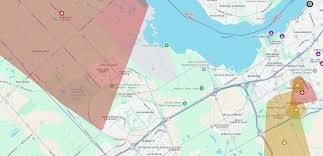Understanding the Power Outage Situation in Ottawa

Introduction
Power outages are increasingly becoming a common occurrence in urban areas, affecting daily activities and causing disruptions. Recently, Ottawa has experienced multiple power outages, capturing the attention of residents and local authorities. Understanding the causes and implications of these outages is crucial for residents to prepare for future disruptions.
Recent Power Outages
In the past month, Ottawa has faced several notable power outages. On September 20, 2023, a severe thunderstorm brought strong winds and heavy rain, leading to widespread outages across the city. Hydro Ottawa reported that over 15,000 customers lost power due to falling trees and debris damaging power lines. Crews worked tirelessly to restore power, with many users reporting service was fully restored within 24 hours.
On October 6, 2023, a more localized outage affected the downtown core, resulting from a transformer failure. Emergency responses were swift, with Hydro Ottawa dispatching teams to assess and repair the damage. By the end of the day, power had been restored to most affected areas.
Causes of Power Outages
Power outages in Ottawa can occur due to various reasons, including severe weather, equipment failure, and infrastructure maintenance. According to Hydro Ottawa, approximately 30% of outages are attributed to severe weather events, which have become more frequent due to changing climate patterns. Additionally, routine maintenance is necessary to ensure grid reliability, which can lead to temporary disruptions.
Impact on Residents
The impact of power outages on residents can be significant, leading to disruptions in daily life, potential losses of food and medicine requiring refrigeration, and disruptions in work or school schedules. Local businesses can also suffer when outages last for extended periods, leading to financial strain.
Preparedness and Response
Hydro Ottawa encourages residents to stay prepared by having emergency kits that include essential items such as flashlights, batteries, medications, and non-perishable food. They also suggest staying informed via their website or social media channels for updates during outages. Furthermore, community resources are available to support vulnerable populations who may require additional assistance during extended outages.
Conclusion
As Ottawa continues to navigate its power supply challenges, being informed and prepared is key for residents. While local authorities and Hydro Ottawa strive to improve reliability and response times, understanding the causes and consequences of outages can help residents better plan for unexpected situations. As weather patterns change and infrastructure ages, proactive measures will be essential in minimizing future outages and ensuring community resilience.








